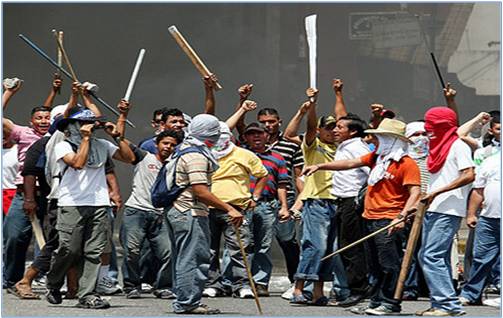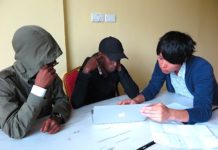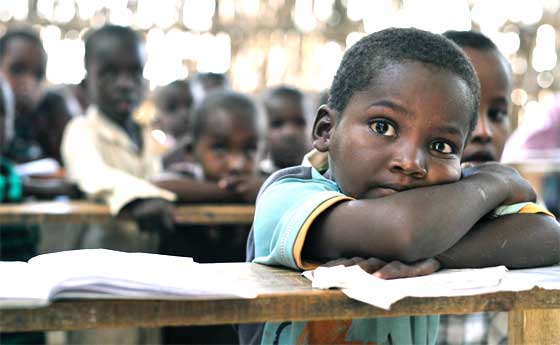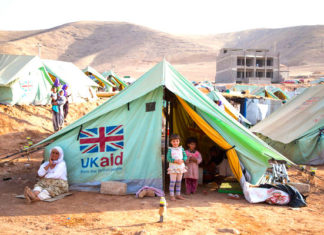by Grahame Russel
There is no end in sight to violence and repression in Honduras. There is no end in sight to the impunity and corruption with which the powerful economic, military and political sectors act. There is also no end in sight to American and Canadian governments and businesses maintaining political, economic and military relations with the Honduras, empowering and ‘legitimizing’ the regime. American and Canadian businesses and investors are, in effect, benefiting from the repression, violence, corruption and impunity.
A HUMAN RIGHTS AND SECURITY ABYSS
Since the US- and Canadian endorsed military coup of June 28, 2009, that ousted the democratically elected government, hundreds of pro-democracy activists have been killed by the State or death squads. Honduras has become known as:
• the murder capital of the world (NCLA News, McClatchy DC, NPR)
• a journalist killing capital of the world (Monthly Review, Tom Lantos Human Rights Commission) ;
• an LGBT killing capital of the world (The Miami Herald)
• an inmate killing capital of the world (BBC, The Real News)
• a lawyer killing capital of the world (United Nations)
In January 2012, the Miami Herald published an editorial “Central America’s free-fire zone.”
“[Honduras] is quickly turning into a disaster zone. … To make matters worse in Honduras, there are indications that elements of the U.S.-backed government are complicit in the violence and criminality. … The murder rate of 82.1 per 100,000 residents … gives Honduras the highest homicide rate in the world.”
On January 27, 2012, the New York Times published an op-ed piece “In Honduras, a mess made in the U.S.” Dana Frank writes:
“It’s time to acknowledge the foreign policy disaster that American support for the Porfirio Lobo administration in Honduras has become. Ever since the June 28, 2009, coup …, the country has been descending deeper into a human rights and security abyss. That abyss is in good part the State Department’s making. … According to the United Nations, it now has the world’s highest murder rate, and San Pedro Sula, its second city, is more dangerous than Ciudad Juárez, Mexico, a center for drug cartel violence. Much of the press in the United States has attributed this violence solely to drug trafficking and gangs. But the coup was what threw open the doors to a huge increase in drug trafficking and violence, and it unleashed a continuing wave of state-sponsored repression.”

This situation of repression and violence has gotten even worse. On May 11, 2012, a US-DEA (Drug Enforcement Agency) raid in the Ahuas community of north-east Honduras left at least four innocent people dead, including two pregnant women; many more were wounded.
EMPOWERING AND LEGITIMIZING THE ILLEGITIMATE
While the United States receives most attention regarding its support for the military backed government of Honduras, Canada has played a major role in empowering and legitimizing the regime.
Canada and the US are the only governments that deemed ‘fair and valid’ the violent, illegitimate post-military coup elections in November 2009. Canada and the US are the only governments to have maintained full political relations with the military-backed regime. Since the coup, both countries – particularly Canada – have even expanded business dealings in Honduras.
In August 2011, Canadian Prime Minister Harper became the first foreign leader to actually visit Honduras since the military coup. (Most governments in Latin America today still do not have full political and economic relations with the military-backed regime). Leading a delegation of politicians and business executives, Prime Minister Harper signed a “free trade” agreement with the regime that gave international credibility to the regime and that further entrenches the rights of Canadian maquiladora (sweat-shop), tourism and mining businesses and investors in Honduras.

DARK TUNNEL OF VIOLENCE AND REPRESSION
There is no light at the end of Honduras’ tunnel of violence and repression, corruption and impunity. While the roots of all this go back at least through the US-backed militarism and repression of the 1970s, 80s and early 90s, there is no doubt that since the 2009 coup, violence and repression have again returned to all time high levels.
OUR PROBLEMS
North Americans must pressure and keep on pressuring our elected politicians and government officials. Public pressure on and shaming of North American governments and businesses is vital if we are to stop empowering and ‘legitimizing’ the illegitimate Honduran regime.
It is equally important to support (with funds, human rights accompaniment, solidarity delegations, etc.) civil society groups in Honduras – many of which are members of the National Resistance Front – that are courageously struggling to denounce the abuses and human rights violations, all the while working to restore their democratic order and to re-found the State and society.
2013 PRESIDENTIAL ELECTIONS
Despite this situation, there is a chance for positive political change in 2013. The wife of the militarily ousted President Zelaya has been chosen as leader of a new political party – LIBRE. Whereas many Hondurans, now in the National Resistance Front, were not Zelaya supporters before the coup, they have been moved by the dignified and courageous positions that both Mel Zelaya and his wife Xiomara took, since the day of the coup.
The 2013 presidential elections will pit corrupted pro-coup, pro-oligarchy parties (likely to be backed openly or indirectly by the US and Canada) against the LIBRE party that has grown out of civil society’s courageous opposition to the military coup and on-going repression and out of the desire of a vast majority of Honduran people to re-found their State and society and restore a truly democratic order.
LIBRE would easily win truly democratic elections, given the chance. However, these elections will undoubtedly be characterized by electoral corruption and threats and repression against people aligned with the LIBRE party.
This is at once a struggle for democracy and human rights in Honduras and across Latin America. It is also, deeply, a struggle for North Americans to hold our governments, companies and investors to account for ‘legitimizing’ the illegitimate, for empowering a repressive and undemocratic regime.
(Grahame Russell is a non-practicing Canadian lawyer, author, adjunct professor at the University of Northern British Columbia and, since 1995, co-director of Rights Action: [email protected]; www.rightsaction.org; www.facebook.com/rightsaction.org)
Featured photo credit: www.hispanicallyspeakingnews.com











